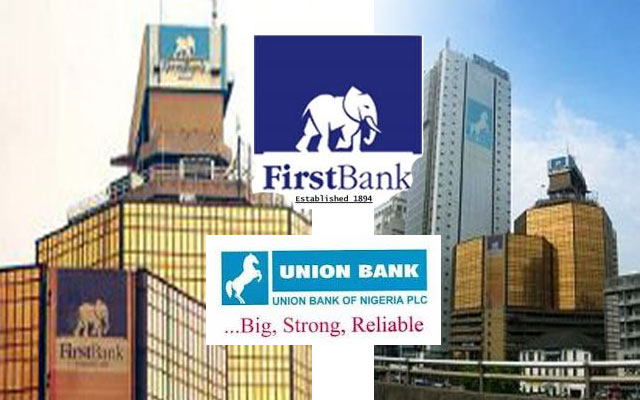Although Nigerian banks are contending with the effects on earnings of weak oil prices, shortages of US dollars, devaluation of the naira and slowing economic growth, these challenges appear to be having a more profound effect on the Tier 2 banks, a report has indicated.
Analysts at Lagos-based CSL Stockbrokers Limited in a report titled: “A Health Check,” obtained by THISDAY, said the situation was having a weighty effect on the Tier 2 banks owing to lower efficiency levels, their less capacity to absorb losses, smaller margins and in some cases, inability to compete for quality loans resulting in lower asset quality.
The report was focused on Diamond Bank Plc, Sterling Bank and Fidelity Bank Plc, stating that the three banks are currently trading at an average price to earnings ratio of 2.5x and an average price-to-book value (PBV) of 0.2x. It stressed that such low valuations have not lured in investors who appear to be discounting these banks based on justifiable concerns over asset quality and capital adequacy.
According to the report, Diamond Bank is “currently dealing with deteriorating asset quality and capital adequacy issues.
“The bank has significant exposure to the oil and gas sector (37% of gross loans) and general commerce sectors (16% of gross loans), two sectors that have been hard hit by current macro-economic conditions.”
For Fidelity Bank, it pointed out that “though Fidelity Bank reports healthy asset quality ratios, we note that the bank has significant exposure to the oil and gas sector (25.8% of gross loans) and to the power sector (10.5% of gross loans).”
Furthermore, the report stated that although Fidelity Bank’s power sector loans do not currently form part of the bank’s non-performing loans, the sector is facing significant challenges presently.
“The bank has historically maintained high capital ratios but the recent devaluation of the naira has strained capital. At 16.4 per cent (compared with a regulatory minimum of 15.0%) we believe Fidelity might have capital issues to deal with in the near term.
“The bank also has a relatively high cost-to-income ratio (74.1% in H1 2016), which makes us believe that the bank’s capacity to absorb an elevated cost of risk (in the event of any deterioration of its oil and gas and power sector loans) is limited,” it added.
Commenting on Sterling Bank, the report stated that the devaluation of the naira in June put a strain on the bank’s capital position.
“The bank’s capital adequacy ratio of 10.9 per cent in first half of 2016 is close to its regulatory minimum of 10 per cent (for banks without international subsidiaries). Though the bank’s non-performing loan ratio and cost of risk remain at manageable levels, the bank also has a relatively high exposure (about 40% of gross loans) to the troubled oil and gas sector.
“The bank’s apparent difficulty in successfully raising capital and its relatively high cost-to-income ratio (76%), which makes it difficult for the bank to absorb an elevated cost of risk, puts a cap on its valuation in our view,” it added.

 Naira4 weeks ago
Naira4 weeks ago
 Naira4 weeks ago
Naira4 weeks ago


 Naira4 weeks ago
Naira4 weeks ago




 Naira3 weeks ago
Naira3 weeks ago
 Commodities4 weeks ago
Commodities4 weeks ago


 News4 weeks ago
News4 weeks ago


 Banking Sector4 weeks ago
Banking Sector4 weeks ago
 Travel4 weeks ago
Travel4 weeks ago
























